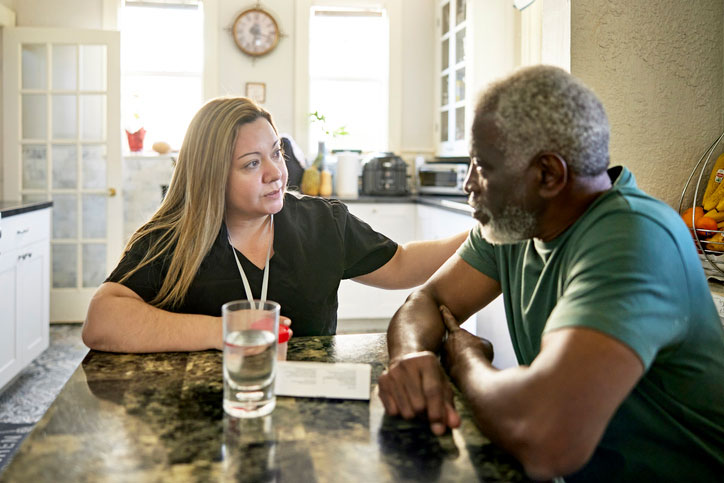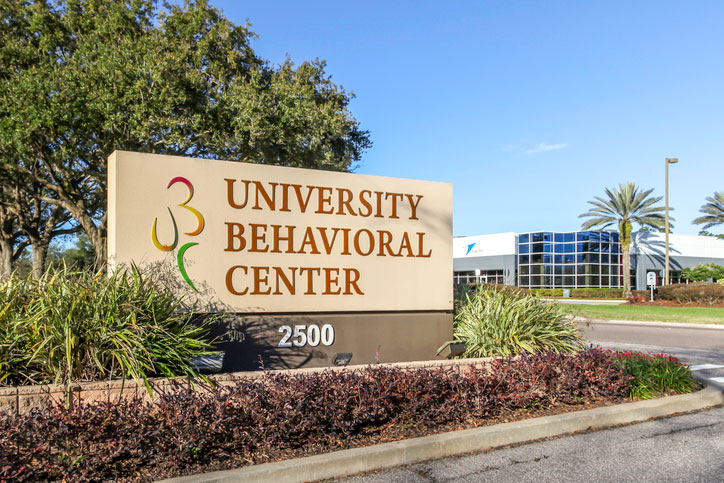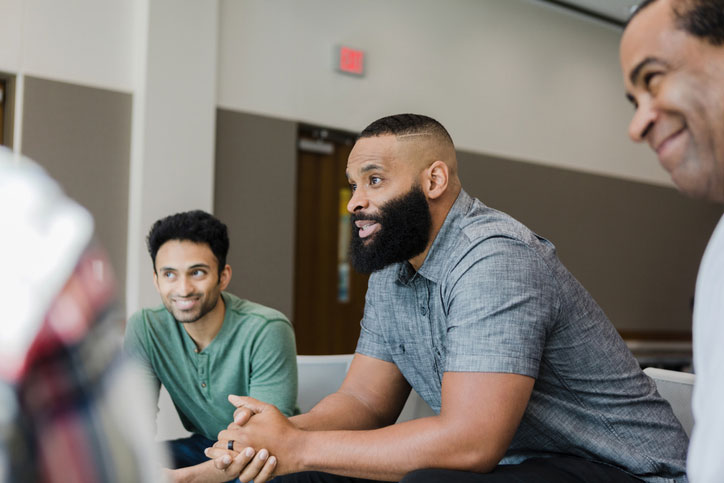Written by Scott Wilson

The Licensed Clinical Social Worker (LCSW) license is the only credential available in Florida that gives social workers the legal authority to provide unsupervised, direct clinical interventions. Full stop.
That means LCSWs are on-call, and sometimes even on-scene, for some of the most challenging and traumatic events to unfold in Florida
After the horrific shooting in Parkland’s Marjory Stoneman Douglas High School, for example, it was LCSW’s working with Broward County Public Schools that were among the first counselors to conduct trauma interventions with survivors and families still reeling from the tragic events of that day. In the wake of the Pulse Nightclub massacre in Orlando, LCSWs with groups like Aspire Children’s Outpatient Counseling extended their services to help calm the community and counsel teens experiencing post-traumatic stress.
There are countless social service providers and programs run by qualified LCSWs to handle less dramatic, but still vital services of counseling and renewal. They bring a unique combination of clinical counseling, case management, and patient advocacy skills to help people through everything from escaping domestic violence to PTSD to substance use disorders.
Licensed Clinical Social Workers in just about every kind of social work specialization are there to help Floridians with any sort of physical, mental, or community need. With full clinical practice authority, they can lay down a range of psychotherapeutic supports just like any behavioral health expert. At the same time, they have the kind of extensive training in the cultural and historical background of social inequality and injustice that puts them in a position to better understand the environmental and social factors behind common mental health and behavioral disorders.
That combination of training gives them a perspective into counseling services that no other profession can bring to the table.
Scope of Practice Is What Separates Florida LCSWs From Other Social Workers
A clinical social work license issued in Florida comes with very specific obligations and a set of professional activities that can be conducted by people who hold that license. This is the scope of practice for the profession.
Scope of Practice: the authority that comes with your LCSW to provide clinical interventions, as well as the lines that are drawn around that authority.
Like many states, Florida doesn’t get too far down into the weeds with detailing the kinds of treatments and assessments LCSWs can perform. Instead, you’ll develop your capabilities and come to understand your restrictions through the course of your education and testing on state and national ethical standards.
But the state law, including Chapter 491: Clinical, Counseling, and Psychotherapy Services and other specific chapters dealing with mental health, substance abuse, adult protective services, and health professions and occupations more generally, provide these outlines applicable to LCSWs:
- Engage in the diagnosis and treatment of a mental or emotional condition, or substance use disorders
- Provide effective treatment to address physical, social, and emotional needs
- Offering psychotherapeutic services
The legal code also covers obligations such as:
- Mandatory reporting of criminal acts or suspected child abuse
- Patient-therapist confidentiality
- Professional conduct and ethical standards
- Record-keeping requirements
Clinical Services Offered by Florida Social Workers Overlap With Other Counseling Professionals
 If you’re thinking to yourself that most of the standards outline above could apply just as much to marriage and family therapists or professional counselors or psychologists as they do to social workers, you’re exactly right. There’s a reason, after all, that it’s all run by the Board of Clinical Social Work, Marriage & Family Therapy, and Mental Health Counseling.
If you’re thinking to yourself that most of the standards outline above could apply just as much to marriage and family therapists or professional counselors or psychologists as they do to social workers, you’re exactly right. There’s a reason, after all, that it’s all run by the Board of Clinical Social Work, Marriage & Family Therapy, and Mental Health Counseling.
Many of the state statutes covering the LCSW scope of practice lump them in with LMFTs and LMHCs as psychotherapists, with the same rights and obligations in treatment.
But each of those professions brings a different perspective and set of abilities to their treatment. While all of them can conduct psychotherapy services, their methods of addressing the underlying problems can differ.
Marriage and family therapists, for example, focus on interpersonal relationships and supports. They treat issues within the framework of how people interact, and put less emphasis on other, underlying issues that may be driving those conflicts.
Licensed mental healthcare counselors deliver interventions that are mostly about mental and behavioral issues that are internal to the mind. They offer treatment that is about building mental health and correcting specific psychological issues the patient experiences.
Only LCSWs, however, truly bring the big picture to psychotherapy. They may not only recognize that a couple is having relationship issues because money is tight, but have the training and resources to help with budgeting and financial assistance applications on top of therapy. They may see that an individuals mental health issues are driven in large part by conditions like homelessness or substance abuse, and they have the tools to fix those underlying problems as well as offering psychotherapy.
The professions are all complementary, but Florida social workers come equipped with a full range of skills that ensure that counseling comes with practical social supports as well as soothing words.
Of course, LCSWs can also come at issues from a community perspective. They have the same broad training in culture, social interactions, and policy as any social worker. That can all be put to good use working with the Florida Mental Health Advocacy Coalition, looking at effective interventions that go beyond the individual level through advocacy and policy changes.
What Sort of Jobs Are Available for Licensed Clinical Social Workers in Florida?
Because of that ability to take on issues at both the individual and community level, jobs for LCSWs in Florida are booming.
Most social work job categories tracked by the Bureau of Labor Statistics (BLS) will see a jump of around 16% by 2032. For mental health and substance abuse social workers it’s 17%. In both cases, that’s more than twice the national average.
Driven by an influx of immigrants and an aging population, healthcare, geriatric services, and immigrant social services are all going to require more clinically-equipped social workers. Job listings at state agencies like the Florida Department of Children and Families or with major non-profits such as Mid Florida Community Services commonly call for applicants with the LCSW.
According to the Migration Policy Institute, foreign born Floridians now make up more than 21 percent of the state’s population.
Of course, you’re perfectly free to engage in just about any kind of social justice effort or intervention you can dream up. There’s no need to stick with anyone else’s idea of what an LCSW should do. If it’s your mission to empower young girls from multicultural backgrounds to learn the technical skills they need to thrive in STEM-heavy industries, working with Miami’s Code/Art can do that. If reducing street violence in vulnerable communities in Metro Miami-Dade is more your speed, you’ve got organizations like Guitars Over Guns to support you.
An LCSW is your permission slip to put your MSW to use in the most effective ways you can find, for Florida and for the world.
Florida LCSW Salaries Offer a Good Living for Doing Good Work

LCSW salary levels in Florida tend to reflect both the demand and the high qualifications required to earn the license. Of course, that’s tempered with the fact that these are human services positions—you become a social worker to help people, not to get rich overnight.
But it’s reasonable to expect a solid living from doing good, and BLS data shows that a social worker’s income can add up to a good life in a low cost-of-living state.
- Child, family, and school social workers - $50,160
- Healthcare social workers - $62,990
- Mental health and substance abuse social workers - $55,540
- All other social workers - $59,390
It’s also likely that the reported averages in all of these categories are dragged slightly lower by positions that are not clinical in nature. Most licensed clinical social workers will probably do better than their counterparts with non-clinical licenses or in positions that don’t require licensing at all.
How To Become a Licensed Clinical Social Worker (LCSW) in Florida
There are only two paths to becoming an LCSW in Florida:
- Follow the normal process of earning education, experience, and passing required exams as outlined by the Florida Board of Clinical Social Work, Marriage & Family Therapy and Mental Health Counseling.
- As a currently licensed clinical social worker in another state applying for licensure in Florida by endorsement
The Florida Board’s website offers licensing information for LCSWs that is quite clear and allows for direct online applications… but we’ll save you some time by laying out the basic steps right here.
1. Earn an MSW with a Clinical Social Work Track through a CSWE-Accredited Program

As you might imagine, getting the kind of education that ranges from psychotherapy to social activism is job one if you plan to become an LCSW. And the only kind of degree that will get you there is the Master of Social Work.
It’s also technically possible to become licensed as an LCSW by earning a Doctor of Social Work or PhD in Social Work in the event that your master’s is in psychology or another field other than social work.
To qualify for the LCSW, that MSW has to include at least 24 semester hours in clinical services including:
- Psychopathology
- Theory of Human Behavior
- Clinical Practice Methods
If you picked a path to master’s qualifications via an advanced standing program, you may also need to ensure that your BSW coursework satisfies the necessary requirements. A letter from the CSWE-accredited school of social work listing that coursework should suffice.
Your MSW will include the required practicum course that places you in direct patient contact, delivering clinical services directly while under the supervision of an experienced clinical supervisor.
Practicum courses are carefully managed and guided parts of the curriculum at clinical MSW programs. They complement your classroom studies and offer a way to see how theory becomes practice.
Florida doesn’t state a specific number of patient contact or supervision hours required for your fieldwork, only that it must be completed as part of your program.
2. Document Two Years of Post-Master’s Supervised Experience

After graduation, you’ll need to build up an additional two years of supervised field experience before you can actually apply for an LCSW. This is where you’ll make a short credentialing detour to become a Registered Clinical Social Work Intern. You’ll need to have that temporary status in order to practice, even under supervision, as a social worker.
Your two years has to include:
- At least 100 hours of supervision in no less than 100 weeks
- At least 1,500 hours of face-to-face psychotherapy with clients
- At least 1 hour of supervision provided every two weeks
Special calculations and provisions are made for counting remote and group supervision.
3. Take and Pass the ASWB Clinical Examination
The Association of Social Work Boards (ASWB) examinations are standard across the country for most social work license levels and types. For the LCSW in Florida, you’ll need to take and pass the ASWB Clinical exam specifically.
You’ll submit your application for the ASWB Clinical exam through the Florida Board, and will only be allowed to do so after accumulating at least 18 months of post-master’s clinical experience.
Once approved, you will be eligible to schedule and take the exam. It’s computer-based, but conducted at in-person examination centers run by PSI.
The 170-question exam is delivered in a multiple choice format and covers four basic areas of clinical social work delivery:
- Human Development, Diversity, and Behavior in the Environment
- Assessment, Diagnosis, and Treatment Planning
- Psychotherapy, Clinical Interventions, and Case Management
- Professional Values and Ethics
They test both your level of knowledge and your reasoning abilities in dealing with common psychosocial treatments. Typically, you’ll need to answer about 100 of the questions correctly to pass, although the weighting of questions varies and so does the exact passing score.
4. Complete Required Continuing Education Courses to Maintain Your Florida LCSW
Your first taste of continuing education will come with a set of three courses you are required to complete in order to become licensed. These aren’t offered directly by the Board or by your university; instead, you’ll find them offered by private providers through CE Broker, the state’s designated continuing education tracker.
These total up to only 13 hours in three specific areas of instruction:
- Florida Laws and Rules - 8 hours in the rules and regulations governing the conduct of clinical social work and any psychotherapy provider in the state of Florida, including mandatory reporting, confidentiality, and ethics rules.
- HIV/AIDS - 3 hours on the stigma and impacts of HIV and AIDS with respect to counseling, testing, and partner notification.
- Domestic Violence - 2 hours learning how to identify domestic violence signs and symptoms, screen patients, and identify resources for restraining orders and treatment.
You can take them each separately and from different providers, or purchase a package deal that includes all three. They must be Board-approved to meet licensing qualifications, however.
5. Meet Personal Background Requirements in Health and Commitment To Become Licensed

Like other official roles that exist in a position of trust and care, Florida screens LCSW candidates for a history of disciplinary or criminal issues.
Simply having a criminal history does’t necessarily disqualify you. Some of the greatest social workers come from some of the most difficult circumstances. Just because you were boosting in Hollywood Hills as a teenager doesn’t mean you can’t turn the page and be a great clinical social worker.
But it does mean you will have to demonstrate to the Board that you are a different person now. Doing so will involve submitting:
- Final dispositions and arrest records from your criminal file
- Showing that you have completed all required probation and financial compensation to victims
- Providing an explanation for your actions and the circumstance of the offense
Something similar will come up if you have been a licensed provider, either in Florida or elsewhere, as a social worker or any other kind of counselor, and have undergone disciplinary actions. You’ll need to submit a copy of those actions and provide an explanation from your own perspective.
Finally, and uncommonly, Florida also evaluates applicants with certain health conditions, including:
- Substance use disorders
- Mental health disorders
- Physical disorders that have impaired your ability to practice your profession
If you have any of those conditions in your history, you’ll need to submit letters from licensed health care practitioners to explain the impact and confirm your ability to safely practice as an LCSW. You’ll also have to draft a letter to offer your own perspective on the condition and submit it to the Board.
Maintaining Your License as a Clinical Social Worker in Florida

Considering the lengthy and rigorous steps you have to take to earn an LCSW license in Florida, it only makes sense that you should expect to have to continue your efforts to keep it.
That comes in the form of a requirement from the Board that you complete a total of 30 hours of continuing education during each two-year renewal period.
Twenty-five of those hours can go toward any topic, although every three years you will need a refresher on your Laws and Rules and Domestic Violence training that is drawn out of those hours.
If you choose to become a qualified supervisor, another four hours will need to go toward Qualified Supervisor CE, also every three years.
The other five hours are required to be devoted to:
- Medical Errors - Two hours each year, and they must be delivered by a specially approved Medical Errors provider designated by the Board.
- Ethics and Boundaries or Telehealth - Three hours will go toward one of these two topics every other year.
All continuing education hours must come through Board-approved providers. Those hours are reported to and through the CE Broker system, rather than to you directly. There are a variety of ways to satisfy continuing education that align with your particular needs and interests, however.
LCSW renewals are performed online through the Florida Health Medical Quality Assurance Online Services portal.
All licenses expire on the same day, March 31, every odd-numbered year, regardless of when you were first granted your LCSW. But you get a pass on CE during your first biennium, so there’s no need to rush to comply until after your first renewal.
Explore Professional Certifications in Social Work for Advanced LCSW Positions in Florida
Although any sort of CE helps keep you sharp as an LCSW, you can also put many of those hours toward an even more impressive kind of career development: earning a professional certification in a specialist area of clinical social work.
The National Association of Social Workers, which also has a very active Florida branch with eighteen local units covering every square inch of the state, is the go-to source for most professional social work certifications.
Depending on your area of specialization, almost any of these can make sense for an LCSW. But there are a number of them that are specifically focused on clinical practice—and only available to social workers with a clinical license:
- Diplomate in Clinical Social Work (DCSW) - This is aimed at clinical social workers taking on leadership roles in any field.
- Qualified Clinical Social Worker (QCSW) - This is the most general clinical certification, signifying expertise in connecting with individuals, families, or small groups through clinical therapy.
- Clinical Social Worker in Gerontology (CSW-G) - Gerontological clinical social work certification signal expertise in knowledge of the aging process and the special challenges of assisting older adults and their caregivers.
- Certified Clinical Alcohol, Tobacco & Other Drugs Social Worker (C-CATODSW) - This certification is the standard for social workers who focus on substance use disorder treatment and engaging in large-scale community efforts to deal with the ravages of drugs and alcohol.
- Military Service Members, Veterans, and Their Families - Clinical Social Worker (MVF-CSW) - The unique nature of therapy for service members, veterans, and their families is the subject of this certification in clinical treatment skills.
In addition to a unique focus, these certs come with their own unique qualifications and continuing education requirements. Earning any of them, however, puts a strong seal of approval on your expertise as a Florida LCSW practicing in that field.
2023 US Bureau of Labor Statistics salary and employment figures for Social Workers reflect national data, not school-specific information. Conditions in your area may vary. Data accessed September 2024.
